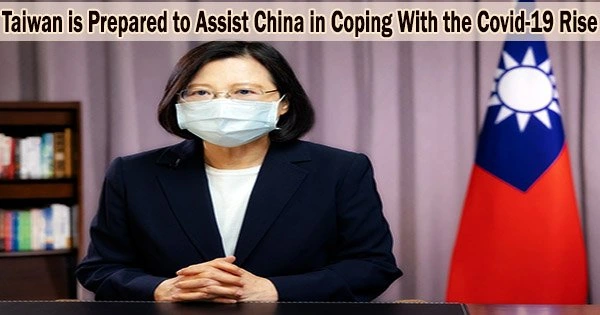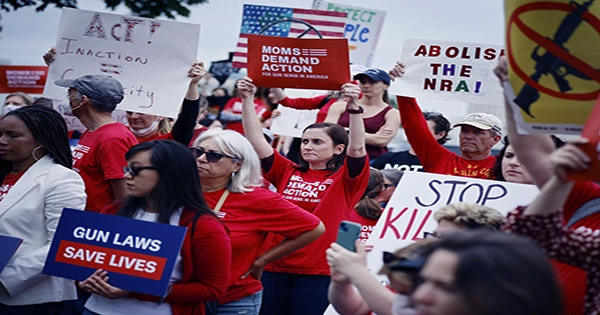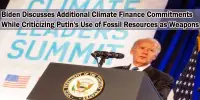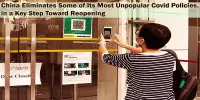After Beijing softened its strong attitude last month, Taiwan’s President Tsai Ing-wen said the self-ruled democratic island is willing to offer assistance to help China deal with its Covid spike.
After almost three years, China ended its onerous zero-Covid policy, halting snap lockdowns, contact tracking, required testing, and quarantine, which severely restricted people’s ability to enter and exit the country.
However, a recent analysis found that the abrupt withdrawal from zero-Covid might result in roughly 1 million deaths as the nation faces an unprecedented wave of illnesses that is spreading from its largest cities into its rural areas.
“Based on humanitarian needs, we are willing to provide necessary assistance (to China) as needed, so that more people can put the pandemic behind and have a healthy and peaceful new year,” Tsai said in her new year’s remarks on Sunday.
However, she did not spell out what forms of assistance Taipei would provide.
Hospitals are struggling to deal with an unprecedented increase in infections as a result of China’s U-turn on its Covid policy, which took both the public and the medical establishment off guard. Some drugstore shelves are now devoid of cold and fever medications.
Additionally, China said last week that it will stop requiring quarantine for foreign arrivals and restart outbound travel for Chinese citizens beginning January 8. However, given the sharp increase in Covid cases in China, this announcement also alarmed some foreign governments.
Countries including the United States, Japan and South Korea moved to impose restrictions, while others such as France and the United Kingdom have made it clear they are ready to welcome Chinese travelers who had been a major driver of international tourism before the pandemic.
Renewed calls for regional stability
In her new year’s message, Tsai also called on Beijing to maintain peace and stability across the Taiwan Strait, saying that it is the common responsibility and expectation of the entire region.
“War is not an option to solve problems. Only through dialogue, cooperation, and the common goal of fostering peaceful development and regional stability can we bring security and happiness to more people,” Tsai said.
China’s ruling Communist Party views Taiwan a democratically governed island of 24 million as part of its territory, despite having never controlled it. It has long vowed to “reunify” the island with the Chinese mainland, by force if necessary.
Cross-strait tensions have racheted up in the past year.
When US House Speaker Nancy Pelosi made a visit to Taiwan last August, China lashed out with its Foreign Ministry saying the trip would have a “severe impact on the political foundation of China-US relations.”
Not long after she landed in Taiwan, Beijing also launched a series of unprecedented military exercises around the island.
















